ARTICLE AD BOX
Annabelle Liang
Business reporter

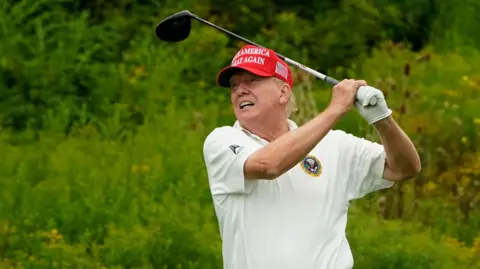 Getty Images
Getty Images
Vietnam's PM has said he would "golf all day long" with Trump
Countries around the world are braced for Donald Trump's so-called "Liberation Day in America!!!" next week.
The US president's deadline to impose reciprocal tariffs on trading partners will come just days after he hit foreign carmakers with 25% import taxes.
Vietnam could be particularly vulnerable to Trump's latest salvo of levies. It has a large trade deficit with the US and has been a beneficiary of firms moving factories out of China to avoid measures announced during his first term in office.
While some countries have hit back at Washington, Vietnam's Prime Minister, Pham Minh Chinh, has suggested that he may take a more diplomatic approach.
Speaking in January, he said he was willing to visit Trump's Mar-a-Lago home in Florida and "golf all day long" if it "benefits" his country, drawing laughter in the room.
Would that work?
'Bamboo' economics
Trump has previously said Vietnam was "worse than China" and "almost the single worst abuser of anybody".
But he has not yet specifically targeted Vietnam with tariffs, even though it has the third largest trade deficit with the US, after China and Mexico.
Analysts say Vietnam is doing well at engaging with Washington - but its efforts may still not be enough to avoid most of Trump's tariff plans.
"The Vietnam PM seems to be taking a page from the book of [former Japanese PM] Shinzo Abe, who built a close personal relationship with Trump over their shared love of golf," said Stephen Olson, a former US trade negotiator.
"I would not however expect any special treatment of Vietnam from a policy point of view. Personal relationships are important to Trump, but in this case, I believe his desire to appear tough on trade will win out."
Vietnam has said it doesn't plan to "restrict trade" with the US, although it currently taxes some imports from there.
The government said this week that it will allow SpaceX, which is owned by close Trump ally Elon Musk, to operate its Starlink satellite internet service in the country on a trial basis.
Some analysts see this as one of the measures Vietnam has taken to avoid being hit with US tariffs.
Hanoi also said it will lower tariffs on several US imports, including energy and cars, a move aimed at "improving trade balances".
It came less than two weeks after Vietnamese and US companies signed more than $4bn (£5.4bn) in deals, in areas including oil and gas exploration.
Steve Norris from the consultancy Control Risks said "Vietnam is being careful to avoid any moves which would signal any non-cooperation on trade issues".
This strategy is in line with its foreign policy approach - known as "bamboo diplomacy". Like shoots of plants that sway with the wind, Vietnam hopes to be adaptable to foreign pressures.
"If the US were to increase pressure on Vietnam, the government might respond with offers to facilitate investments in the hospitality and casino industries, undertake advanced machinery purchases, and – capturing the moment – consider access to Vietnam's rare earth minerals," Mr Norris said.
What about China?
One big factor working against Vietnam is concerns about China's influence.
Vietnam was one of the biggest beneficiaries of US-China tensions during Trump's first term.
In 2018, he hit China with tariffs, causing some businesses to rethink where they made their products. Some chose to shift manufacturing to Vietnam.
This has led to an increase of exports from Vietnam to the US, with Chinese companies that have moved production there contributing to that figure.

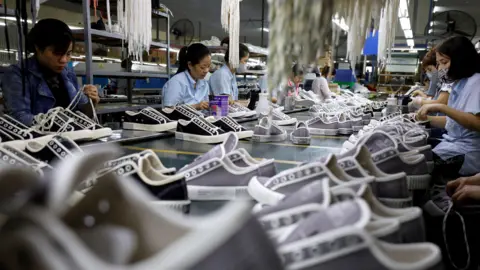 Reuters
Reuters
Vietnam has benefited from US-China tensions during Trump's first term in office
Former US trade negotiator Wendy Cutler said Vietnam has emerged as a "destination for major Chinese investment".
While the US remains Vietnam's biggest export market, China is its largest supplier of goods, accounting for more than a third of imports, according to the latest official data.
Chinese firms were also behind nearly one in every three new investments in Vietnam last year.
"These are huge red flags for Trump. My expectation is that Vietnam will at some point be hit hard by tariffs," Mr Olson said.
However, tariffs on Vietnam could impact US businesses such as tech firms Apple and Intel, and sportswear giant Nike, which have moved production lines from China to Vietnam.

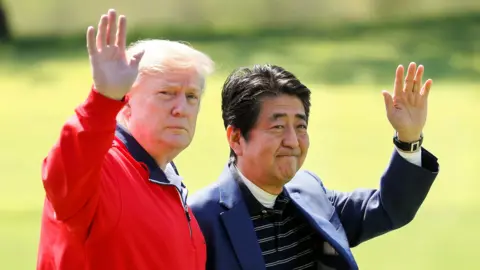 Getty Images
Getty Images
Trump and former Japanese leader Shinzo Abe shared a love of golf
A recent survey by the American Chamber of Commerce in Vietnam found that most US manufacturers there expect to lay off staff if tariffs are imposed.
The US president believes the levies will boost his country's economy by encouraging more businesses to make goods in the US and bring in billions of dollars of taxes.
But many economists have warned that it could force up prices for American consumers and negatively impact global trade.
What comes next?
Washington is also concerned about so-called "trans-shipments" - Chinese goods passing through Vietnam on their way to other countries.
US officials have been "quietly stressing to Vietnam that it must reduce its trade surplus over time and combat the trans-shipment of Chinese goods through the country," Mr Norris said.
Vietnam's prime minister has said he is confident that his administration can "handle the relationship with the US".
Now that the South East Asian nation has cut some tariffs on US goods they may be more attractive to Vietnamese consumers, increasing America's share of trade with the country.
And then there is golf - playing a game with Trump had worked for the late Japanese leader Shinzo Abe.
Abe and Trump established a friendship, which included many golf games over several years. The friendship arguably helped Abe secure tariff exemptions for Japan's critical car industry at the time.
For now, it is unclear if Vietnam would really give golf diplomacy a swing.
The real test will come next week, when a new slate of Trump's taxes are set to take effect.

 1 month ago
28
1 month ago
28
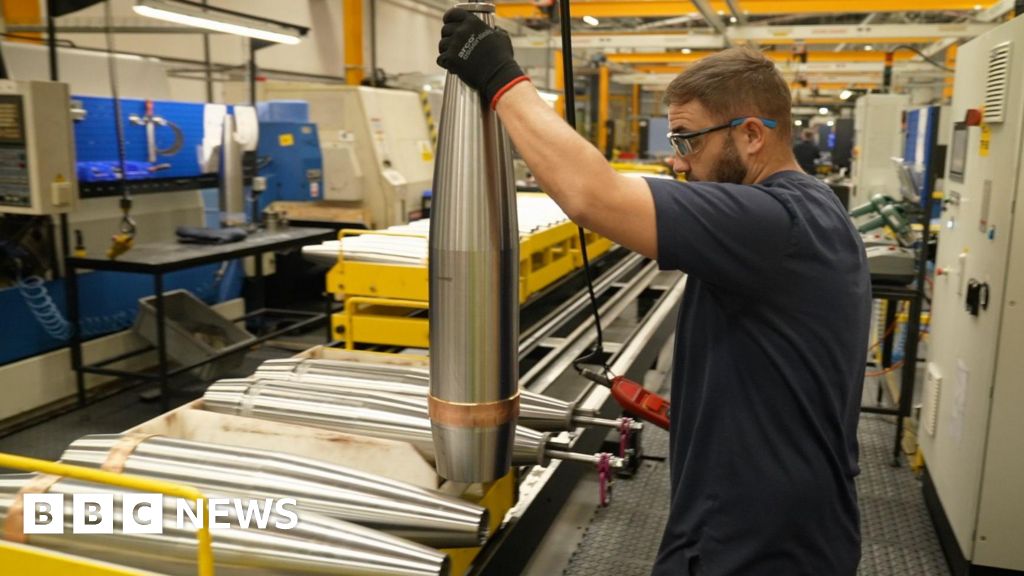
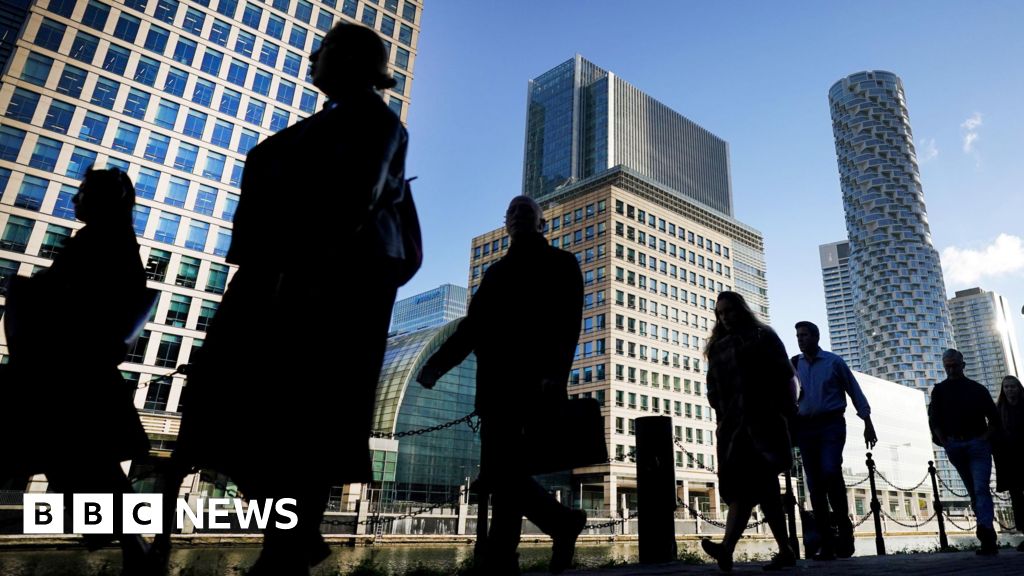
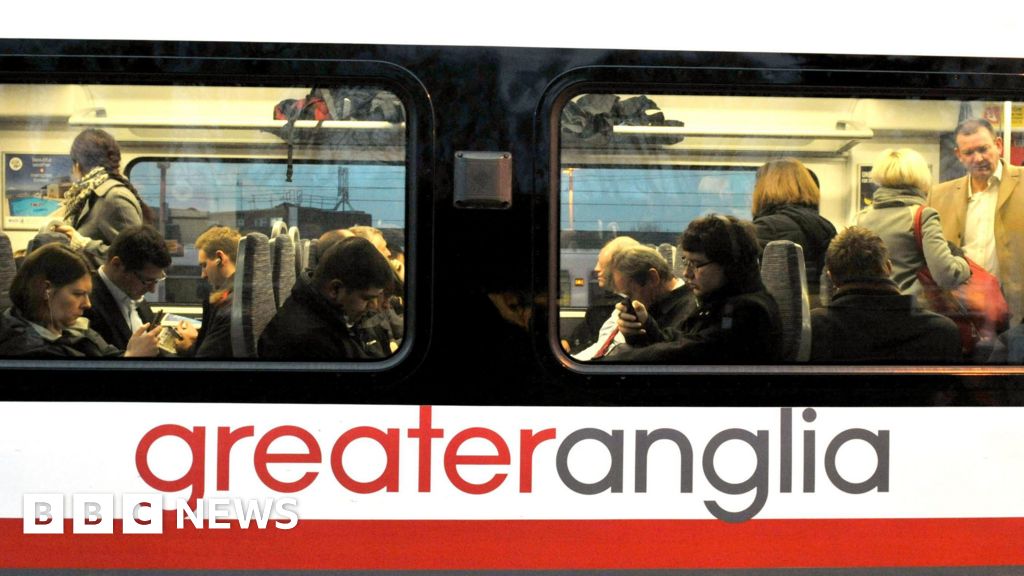





 English (US) ·
English (US) ·